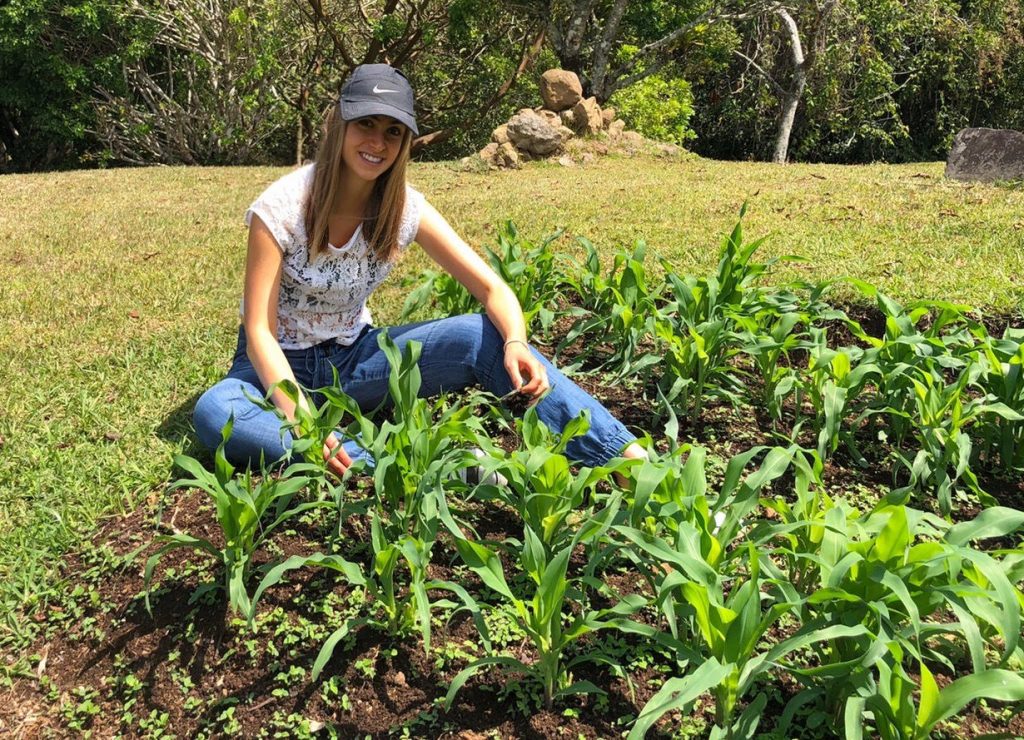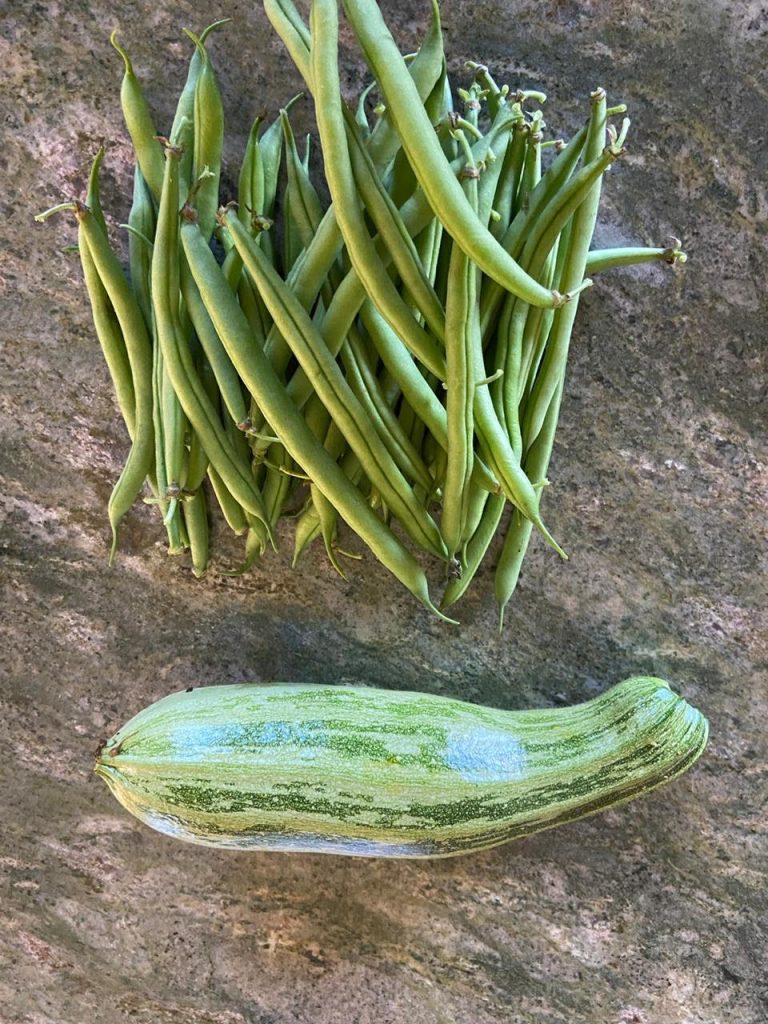
When the coronavirus pandemic began in March, María Suarez, junior in bioengineering, left Penn’s campus and returned home to Costa Rica. What should have been the final weeks of club activities, social events and end-of-year celebrations shifted to months spent at home, far away from Philadelphia. But Suarez, like many others, wanted to do something productive with her time in quarantine. Drawing on her bucolic roots, she decided to start a garden.
“I was born and raised in a very rural area,” Suarez says. “There is a huge river in my backyard where I learned how to count by throwing pebbles in the river with my mother and sister. Nature is a big part of my life, and it’s really shaped my personality. As a child, I planted herbs, like basil, mint and oregano, with my parents. When you are close to the land like this, gardening was something that grew naturally out of our lifestyle.”
As the spring semester shifted into summer, Suarez returned to her love of planting and embarked on an ambitious project to grow a vegetable garden in her backyard. Unlike the smaller herb gardens she had grown as a child, this vegetable garden required deeper horticultural knowledge as well as intense work under the hot sun.
“To begin the garden, I had to clear the land I wanted to use and remove all the grass and stones from the soil,” Suarez shares. “It was the dry season in Costa Rica and the ground was very difficult to work with.”
After clearing the land, Suarez had to bring nutrients back into the soil of her garden plot. Luckily, her family has been maintaining a natural compost pile for many years.
“Basically, the compost pile is a hole in the ground where we put our natural food waste. There are worms and animals there that help us naturally decompose the waste and they produce a very nutrient rich soil.” Suarez explains. “The compost is a five-minute walk from my garden, and I had to take at least ten trips with a wheelbarrow to bring enough back. It was a great arm workout.”
Once the soil was placed and watered, Suarez was finally able to plant her seeds. After a few days, she saw celery and zucchini plants beginning to sprout. Throughout the summer, Suarez’s crops grew well, and she was able to harvest the vegetables and share them with her family.
“It was very fulfilling to see the products of my efforts,” Suarez says.
While growing her vegetable garden has reaped many rewards — such as fresh herbs and produce to share with her family — it also came with challenges. In August, Suarez noticed that her garden’s production decreased, so she consulted local farmers for advice.
“They brought to my attention that if I kept planting on the same soil, it would run out of nutrients,” says Suarez. “To solve this, I took soil from my personal compost bin and added it to my garden. I also changed the type of vegetables I was planting to allow different nutrients in the soil to regenerate.”
While Suarez is still learning the best practices for tending her garden, she has even bigger plans for her plants in the coming months. In Costa Rica, many crops fail as a result of weeds or diseases that live in the natural soil. Suarez believes that hydroponic planting — a method of growing plants in pools of water and nutrients instead of soil — could be the future of Costa Rican agriculture. She is testing her theory with her own garden. Last winter, while home on break from Penn, Suarez and her father built a small hydroponic garden using PVC pipes. Now, Suarez is scaling up to build a hydroponic greenhouse. It’s still under construction, but Suarez is excited about the project.
“I’m working on finishing the structure of the greenhouse and developing a water circulation system,” Suarez says. “Currently, my garden doesn’t have access to electricity for an automatic system. That is a big challenge, but I believe that my Penn Engineering knowledge will help me create something pretty cool.”
Suarez argues that hydroponic gardening offers the opportunity for vertical planting which would minimize land use and maximizes the efficiency of each square foot of planting.
“Costa Rica is a place that depends heavily on agriculture but, as it is now, crops die from soil-borne diseases and people depending on the crops suffer through very difficult times as a result,” she notes. Suarez hopes that her experiments in hydroponics can help others like her who are interested in growing gardens in difficult terrain.

All this time spent in the garden has given Suarez a new perspective on the meaning of hard work.
“My mother often says, ‘If you plant in fertile soil, you will get results,’” Suarez shares. “Usually, when she says this, I complain. But after growing this garden, I see what she means. Something I like about planting is that I get to see that if I put in the hard work, I am going to get good results. It’s a very tangible reward for my efforts, and that feels great.”
Throughout the summer, Suarez has been able to enjoy some of her harvest, such as cilantro, green beans and cucumbers. Like many other Penn Engineering students, Suarez will be participating in virtual classes this semester from her home in Costa Rica. While this isn’t what she anticipated for Fall 2020, Suarez says tending her garden has been an enriching experience during a difficult time.
“This garden has been a great experience so far,” Suarez shares. “I would recommend it to anyone who has the space to plant something right now. It’s so fulfilling and you learn a lot from it.”
